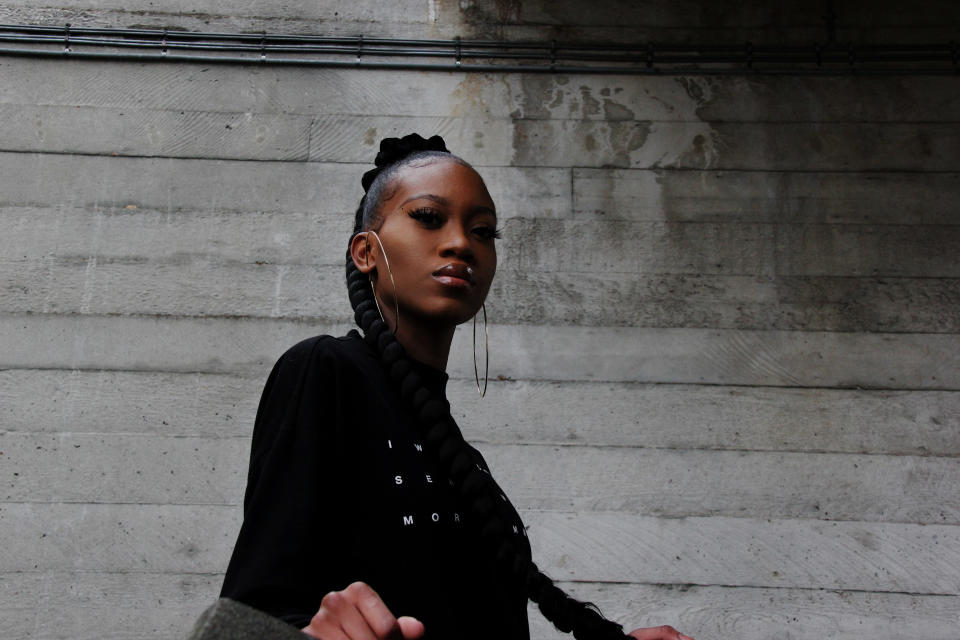'Dear beautiful brown girl': This empowering film is a love letter to black women and their hair

Enough is enough: In a world where reality stars are giving credit to Bo Derek for Fulani braids (a style that was originally worn by women from the African Diaspora) and renaming cornrows “boxer braids,” credit should be given where it is rightfully due. A creative collective based in London recognized this upswing of cultural appropriation when it comes to hairstyles originated by women of color, and it decided to make a responsive short film that’s empowering black women all over the world.
Lambb, short for “Look at My Black Beauty,” was founded by two sisters, Naomi and Cauline Grant, with a mission to redefine images of people of color in media. Future First is their latest short video, serving as a direct response to the exploitation of black hair. “Cultural appropriation has been topical for the past few years, with celebrities continually claiming elements of black culture but denying the originators,” says Naomi. “I wanted to explore this, but from a different angle. I didn’t want to paint black girls as victims who are being robbed and silent; I wanted to paint them as past, present, and future leaders.”
The roughly five-minute video begins by showing gorgeous imagery of women of color with natural-hair textures, and its narration is like that of a love letter to black women and their hair. “Dear beautiful brown girl, I remember when you would sit for hours, head resting on your mother’s lap as she braided one strand over, one strand under,” the narrator says. “Your neck would ache and at times the comb would get tangled in your full head of curls, but you’d smile anyway.” As the clip continues, she speaks elegantly about the familiar experiences many black women have with their hair and closes by saluting women of color as being leaders.
“The film encourages black girls to reclaim their time, as society often tries to steal from us, then decline us,” says Naomi. “It shows how our hair is deeper than just hair — it is a common thread that unites women across the world and is deep-rooted in our culture.”
Reflect back to Marc Jacobs’s Spring 2017 fashion show, which featured models parading down the runway with colorful dreadlocks, a style deep-seated in Rastafarian culture. Yet the show featured only three models of color, further proving why films such as Future First are much needed and hold so much significance.

“Cornrows and braids are anchored in every black girl’s upbringing,” says Naomi. “No matter how curly or coarse your hair is, every black girl must remember the time they sat on the floor, resting on their mother’s knee while getting their hair braided. I wanted to start with that universal image, an image that reminds us of our childhood, an image that brings us home.”
Just in time for International Women’s Day, the release of this short film couldn’t have been any better. It’s powerful and reminds black women that they are pioneers. “Black women have throughout history been silent leaders, leaders who built mansions from bricks but were denied credit,” says Naomi. “Today though, women are no longer asking for a seat at the table, we are demanding it.”
Read more from Yahoo Lifestyle:
This South Sudanese college student is now a top model at Prada, thanks to the internet
8 skin care brands that are getting things right for deeper skin tones
Follow us on Instagram, Facebook, and Twitter for nonstop inspiration delivered fresh to your feed, every day.
